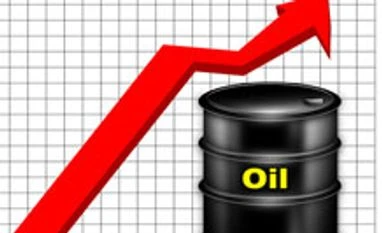Oil edged higher in Asia today ahead of a key report expected to show further build-up in US crude inventories, further hitting prices in an already oversupplied market, analysts said.
US benchmark West Texas Intermediate (WTI) for April delivery rose one cent to $49.29 while Brent crude for April gained 24 cents to $58.90 in late-morning trade.
"There will probably be further increases in US inventories and this is bad for global crude oil prices which will fall even further," David Lennox, resource analyst at Fat Prophets in Sydney, told AFP.
Experts polled by Bloomberg News expect crude reserves in the world's biggest economy to rise 3.75 million barrels in the week to February 20, adding to the 425.6 million barrels in stockpiles reported last week.
The US Department of Energy will release the official stockpiles report later today.
Daniel Ang, investment analyst at Phillip Futures in Singapore, said the global supply glut cannot be reversed unless there is a drop in US crude production from current levels of around 9.2 million barrels a day.
"Unless it drops to below nine million barrels per day, we do not expect this oversupply issue to end," Ang said.
Analysts said dealers are meanwhile also digesting US President Barack Obama's decision yesterday to veto legislation allowing the Keystone XL oil pipeline to be built between Canada and the US.
The 1,900-kilometre TransCanada-built pipeline would transport crude from energy-rich Alberta to a network of pipelines that reach across the United States to the shores of the Gulf of Mexico.
Obama says he is not against the project in principle, but accused legislators of trying to "circumvent longstanding and proven processes" for gauging whether Keystone is in the national interest.
The project has in recent years pitted environmental groups against the oil industry, which has argued that it will bring much-needed jobs to the US and help it achieve energy self-sufficiency.
Lennox said Obama's decision is likely to be "insignificant in the short term" to crude oil prices as it was a decision many had expected.
US benchmark West Texas Intermediate (WTI) for April delivery rose one cent to $49.29 while Brent crude for April gained 24 cents to $58.90 in late-morning trade.
"There will probably be further increases in US inventories and this is bad for global crude oil prices which will fall even further," David Lennox, resource analyst at Fat Prophets in Sydney, told AFP.
More From This Section
Both WTI and Brent have fallen sharply this week as traders worry about abundant global supplies amid slower economic growth, with no sign of a slowdown in rising US crude stockpiles.
Experts polled by Bloomberg News expect crude reserves in the world's biggest economy to rise 3.75 million barrels in the week to February 20, adding to the 425.6 million barrels in stockpiles reported last week.
The US Department of Energy will release the official stockpiles report later today.
Daniel Ang, investment analyst at Phillip Futures in Singapore, said the global supply glut cannot be reversed unless there is a drop in US crude production from current levels of around 9.2 million barrels a day.
"Unless it drops to below nine million barrels per day, we do not expect this oversupply issue to end," Ang said.
Analysts said dealers are meanwhile also digesting US President Barack Obama's decision yesterday to veto legislation allowing the Keystone XL oil pipeline to be built between Canada and the US.
The 1,900-kilometre TransCanada-built pipeline would transport crude from energy-rich Alberta to a network of pipelines that reach across the United States to the shores of the Gulf of Mexico.
Obama says he is not against the project in principle, but accused legislators of trying to "circumvent longstanding and proven processes" for gauging whether Keystone is in the national interest.
The project has in recent years pitted environmental groups against the oil industry, which has argued that it will bring much-needed jobs to the US and help it achieve energy self-sufficiency.
Lennox said Obama's decision is likely to be "insignificant in the short term" to crude oil prices as it was a decision many had expected.
)